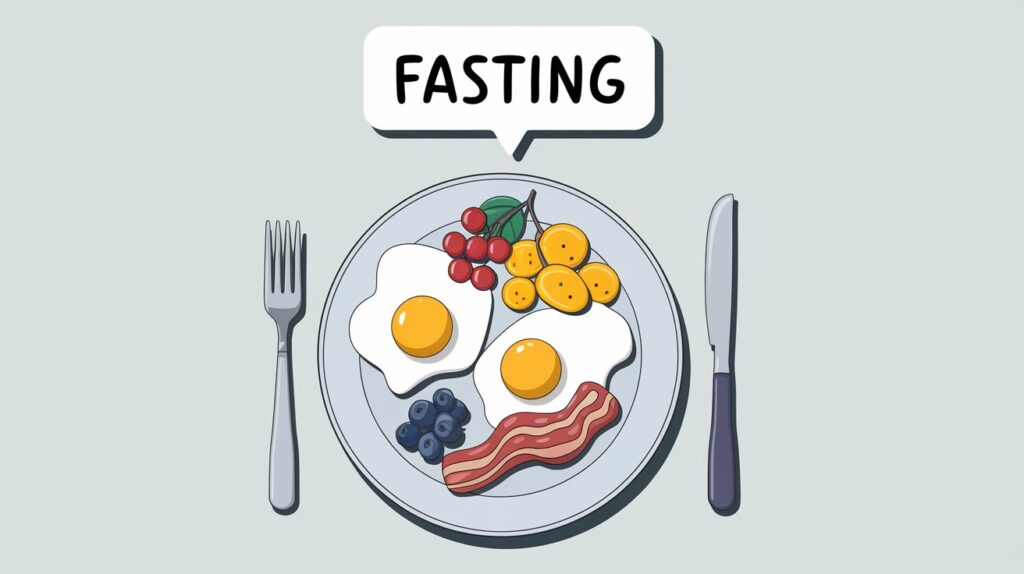Intermittent fasting has recently become a prevalent and often debated dietary approach. Unlike traditional diets that focus on what to eat, intermittent fasting centres on when to eat. By incorporating periods of fasting and eating into daily or weekly routines, this eating pattern has gained attention for its potential health benefits, simplicity, and adaptability.
But what exactly is intermittent fasting? How does it work, and can it provide the health and wellness benefits so many claim? In this detailed article, we’ll explore the ins and outs of intermittent fasting, examine its benefits and potential drawbacks, and answer common questions to help readers decide if this method suits them.
What is Intermittent Fasting?
At its core, intermittent fasting is an eating pattern in which individuals alternate between periods of eating and fasting. It’s important to note that intermittent fasting doesn’t prescribe what foods to eat but focuses on when. This distinction differentiates it from many traditional diets involving calorie counting, food restrictions, or complicated meal plans.
Popular Methods of Intermittent Fasting
Several variations of intermittent fasting have gained popularity, each with a slightly different approach to eating and fasting cycles. Some of the most common methods include:
- Time-Restricted Feeding (TRF)
Time-restricted feeding involves limiting the daily eating window to a specific number of hours, typically between 4 to 8 hours. For example, one might eat between 12 p.m. and 8 p.m. and fast for the remaining 16 hours. This method is widely known for its flexibility, allowing participants to adapt fasting periods to their lifestyle.
- The 16/8 Method
A more specific version of time-restricted feeding, the 16/8 method, requires fasting for 16 hours and eating within an 8-hour window. Many individuals find this approach manageable as it often aligns with skipping breakfast and eating two meals in the afternoon and evening.

- The 5:2 Diet
On the 5:2 diet, participants usually eat five days a week and restrict their calorie intake to 500-600 calories on the remaining two days. This method is popular among those who prefer a less frequent fasting schedule while still enjoying the benefits.
- Alternate-Day Fasting
As the name suggests, alternate-day fasting involves fasting every other day. While some people consume only 500 calories on fasting days, others prefer complete fasting, where no calories are consumed.
- Eat-Stop-Eat
Eat-stop-eat involves fasting for 24 hours once or twice a week. Participants typically fast from dinner one day until dinner the next, avoiding all calories during the fasting period. This method allows for flexibility and works well for those who prefer fasting less frequently but for longer durations.
The Science Behind Intermittent Fasting
Both animal and human studies support the potential benefits of intermittent fasting, although research is still ongoing. Here’s a closer look at some of the most touted benefits:
Also Read: Kelly Bates asks supporters not to take out their anger on NBC 10 …
- Weight Loss
One of the primary reasons people turn to intermittent fasting is for weight loss. By naturally reducing the window in which food is consumed, many individuals unintentionally reduce their overall calorie intake. Fewer calories, paired with the body’s use of stored fat during fasting periods, can contribute to weight loss.

- Improved Insulin Sensitivity
Research has shown that intermittent fasting can improve insulin sensitivity, which is crucial for regulating blood sugar levels. Fasting reduces the body’s reliance on glucose and increases its ability to use insulin more efficiently. This can lower the risk of developing type 2 diabetes and promote overall metabolic health.
- Enhanced Cellular Repair
During fasting, the body initiates processes that repair cells and remove waste products. This process, known as autophagy, allows the body to eliminate damaged or dysfunctional cells. It’s thought that autophagy plays a crucial role in ageing, cellular regeneration, and possibly even cancer prevention.
- Reduction in Inflammation
Chronic inflammation is linked to many diseases, including heart disease, diabetes, and certain cancers. Several studies suggest that intermittent fasting may reduce markers of inflammation, offering protective effects against these conditions.
- Improved Heart Health
Fasting has improved various heart health markers, including reducing blood pressure, cholesterol levels, triglycerides, and inflammatory markers. With heart disease being one of the leading causes of death worldwide, these potential benefits should not be overlooked.
- Boosted Brain Function
Some studies suggest that intermittent fasting may enhance brain function by increasing the production of a brain-derived neurotrophic factor (BDNF) protein. This protein is vital for cognitive function, memory, and mood regulation, and its deficiency is linked to neurological disorders.
Is Intermittent Fasting Right for You?
While the benefits of intermittent fasting are appealing, they are only for some. Considering individual health circumstances and goals is essential before adopting this approach. Here are some factors to keep in mind:
- Health Conditions
Individuals with certain medical conditions—such as diabetes, eating disorders, or those who are pregnant—should consult a healthcare professional before attempting intermittent fasting. Fasting can affect blood sugar levels, hormones, and energy balance, so it’s essential to ensure safety.
- Lifestyle Considerations
One of intermittent fasting’s advantages is its flexibility, but it can be challenging to follow. Social gatherings, family meals, and work schedules can complicate fasting windows. Maintaining consistency is crucial to finding a method that fits seamlessly into your daily routine.

- Personal Response to Fasting
People respond to fasting differently. Some may thrive with increased energy and improved focus, while others may feel irritable or tired. It is essential to listen to your body and adjust your fasting approach.
Common Questions About Intermittent Fasting
Is it safe to fast long-term?
Intermittent fasting is generally considered safe when done correctly for most healthy individuals. However, long-term fasting should be approached cautiously, and consuming a nutrient-rich diet is essential while eating windows.
Will intermittent fasting slow down my metabolism?
On the contrary, some studies suggest that intermittent fasting boosts metabolism by increasing levels of norepinephrine, a hormone that helps burn fat. However, prolonged calorie restriction may lead to metabolic slowdown, so balance is critical.
Can I drink water or coffee while fasting?
Yes! Water, black coffee, and herbal teas are allowed during fasting periods. These beverages can help curb hunger and keep you hydrated without breaking your fast.

Conclusion
Intermittent fasting offers a flexible and potentially powerful approach to improving health and wellness. The benefits are numerous, from weight loss and improved insulin sensitivity to cellular repair and brain function. However, like any lifestyle change, it’s essential to consider your needs and consult a healthcare professional before starting.
Intermittent fasting may be the key for those looking for a manageable, non-restrictive way to support their health goals. With various methods, this eating pattern is adaptable and sustainable for many individuals. Listen to your body, stay mindful of your eating habits, and enjoy the potential rewards of this time-tested approach to eating.


1 thought on “Intermittent Fasting: Unlocking the Benefits of a Revolutionary Eating Pattern”